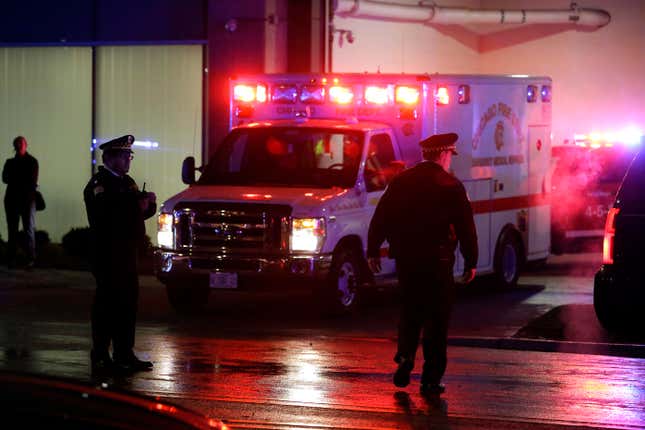Most People Criminalized for Inducing Abortion Are Turned in by Doctors, Not Internet Activity
"The biggest threat to the privacy of abortion seekers is other people," a researcher at If/When/How told Jezebel.
In Depth

On Monday, a tip to police in Norfolk, Nebraska, led to the arrest of a mother and daughter, who now face felony charges for the 17-year-old daughter’s self-managed abortion, for which the teen is being charged as an adult for “removing, concealing or abandoning a dead human body.” In addition to the tip to police, law enforcement has entered Facebook messages as evidence against the pair after successfully serving the company with a search warrant. The harrowing development is just one example of the multi-pronged ways pregnant people and those who help them are being monitored and criminalized—even more so after the fall of Roe v. Wade.
Since the Supreme Court decision in Dobbs v. Jackson Women’s Health, Democrats have ramped up pressure on data brokers, including Meta and Google, to stop collecting and selling pregnant people’s data, which poses a legal risk to those who lose their pregnancies or have abortions. This pressure campaign has been largely unsuccessful: Other than an ambiguous announcement from Google pledging to delete some location data of users who visit abortion clinics and other relevant facilities, data brokers overwhelmingly haven’t changed their practices. The fall of Roe also prompted a torrent of urgent warnings to delete period and fertility tracking apps, despite experts pointing out that criminalizing pregnancy has historically relied on other approaches.
Yet, on top of news from Nebraska, a new report shared with Jezebel by the legal advocacy organization If/When/How found that, in the majority of cases in which pregnant people faced criminal charges for self-managed abortion in the past two decades, they were reported to law enforcement following in-person interactions—by doctors and acquaintances.
Between 2000 and 2020, among 61 cases of individuals self-managing abortion or helping someone self-manage an abortion that “came to the attention of law enforcement,” most were reported to police by care professionals and acquaintances: 39% were reported by health care providers and 6% by social workers, while 26% were reported by acquaintances the pregnant person had shared information with, including friends, parents, and intimate partners. Even prior to Roe being overturned, bounty hunter-style abortion bans in Texas, Idaho, and Oklahoma were a boon to abusers, who could stalk their victims and profit off their abortions. If/When/How found 20% of cases also came to the attention of police through other means, including police recovery of fetal remains and anonymous tips to police.
“What we’ve really confirmed through our research is that the biggest threat to the privacy of abortion seekers is other people,” Laura Huss, a senior researcher at If/When/How and a co-author of the report, told Jezebel. “We really want health care professionals to know they can help stop criminalization before it happens.” Huss noted that when patients know health care providers are policing them, “that can only make people more afraid to get the care they need.”
Doctors reporting pregnant patients to police isn’t new.
Currently, about a dozen states have totally banned abortion or banned care at about six weeks (before many people know they’re pregnant). Many of these bans threaten doctors who defy them with lengthy prison sentences. While few bills have explicitly threatened abortion patients with incarceration, pregnant people have faced criminal charges and jail time since long before Roe was overturned. Criminal charges for pregnancy loss and self-managed abortion tripled between the periods of 1973 to 2005 and 2006 to 2020, from 413 to 1,331 cases.
-

-

-

-

-

-

-

-

-

-

-

-

-

-

-

-

-

-

-

-

-

-

-

-

-

-

-

-

-

-

-

-

-

-

-

-

-

-

-

-








































